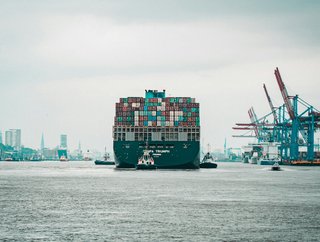Sphera: The Top Risks Impacting Global Supply Chains

As after-effects of the COVID-19 pandemic moved into the rearview mirror, supply chains remained vulnerable to all manner of other risks throughout 2023.
Inflation and rising interest rates, natural hazard events and ESG-related risks such as human rights violations and labour practices were just a handful of the factors to wreak havoc on the sector.
So, in an attempt to provide insights into the risks that impacted supply chains last year, in addition to their causes and consequences, Sphera has published its inaugural Supply Chain Risk Report.
The leading global provider of ESG performance and risk management services compiled the report based on data from its own Supply Chain Risk Management (SCRM) software, which provides actionable insights into a multitude of potential disrupters so companies can proactively manage and mitigate supply chain risk.

"Our report shows a broad range of risks, increasing ESG regulations and compliance failures can stress businesses," comments Paul Marushka, CEO and President at Sphera.
“Risk exposure is dynamic, and constantly-evolving supply chain risks cause ever-increasing market volatility. By optimising the supply chain composition and diversifying suppliers, companies can better manage the uncertainty that comes with supply chain disruptions.”
Finance challenges stress the supply chain
On a monthly basis, the AI-powered risk intelligence component of Sphera SCRM scans more than 15 billion reputable news articles, commercial and government data sources, and a million customer and supplier sites around the world.
These feeds provide Sphera with highly-representative supply chain risk insights, and allow the company’s technology to identify potential risks or worsening trends and notify customers of such threats.
In compiling its supply chain risk report, Sphera compared the number and types of indicator messages sent from January to November 2023 with the data points from the same period in 2022.
The data showed more than a third (36%) of financial risk notifications warned of worsening revenue and growth outlook. High inflation rates in the EU and US eroded suppliers' purchasing power, with insolvency under self-administration going up 23% and bankruptcies increasing by 42%.
What’s more, site relocations or closures increased by 26%.
Clearly, though, financial distress doesn’t happen overnight. The key moving forward will be for companies to increase their awareness of finance-related risks—factoring it into their strategic planning—to help them withstand economic fluctuations and uncertainties and build resilience.
Extreme weather on the rise
Sphera’s report shows natural hazard events hit supply chains hard in 2023, with warnings for tornadoes climbing 45%, hailstorm warnings increasing by 26% and tropical cyclone warnings up 6%.

Two-thirds of the global economy is impacted either directly or indirectly by weather conditions, with industries such as agriculture, energy and transportation particularly affected.
The answer could be a solution offering 24/7 monitoring and advanced notification of weather risks, helping companies prepare their supply chains and get ahead of impending disruption – this minimising financial impact.
ESG-related risks remain prominent
Data shows that ESG-related risks in supply chains continued to rise in 2023, with indicator messages for the entire category rising by 6%.
Human rights notifications increased 12%, labour practice issues by 13% and ESG-related issues related to violations of environmental practices by 1%.
“Increased globalisation, regulatory changes and consumer and investor demands can all contribute to the greater prominence of ESG risk in supply chains,” reads Sphera’s report.
“A holistic approach to supply chain risk management that integrates ESG considerations into the strategy can help companies mitigate the consequences of ESG-related risk.”
******
Check out the latest edition of SupplyChain Magazine and sign up to our global conference series – Procurement and SupplyChain LIVE 2024.
******
SupplyChain Magazine is a BizClik brand.
- How the C3 AI Supply Chain Suite Drives Increased ResilienceTechnology
- The Art of Supply Chain Planning with Gartner, SAP, KinaxisSupply Chain Risk Management
- Top 10: Women in Supply Chain in the Middle East and AfricaOperations
- How to Boost Supply Chain Visibility with Tive and ArvatoSupply Chain Risk Management






